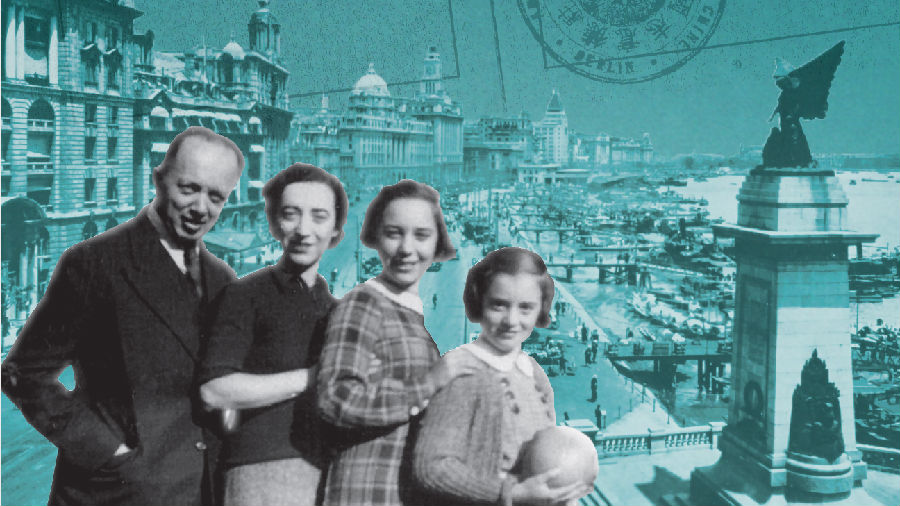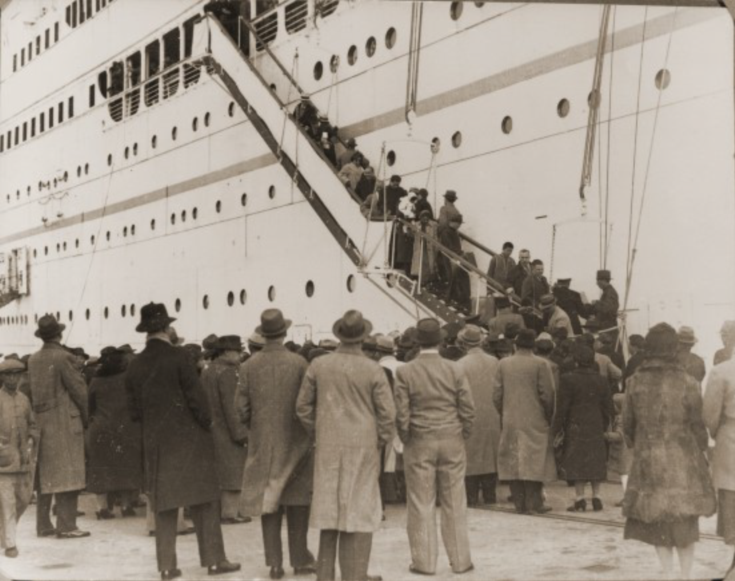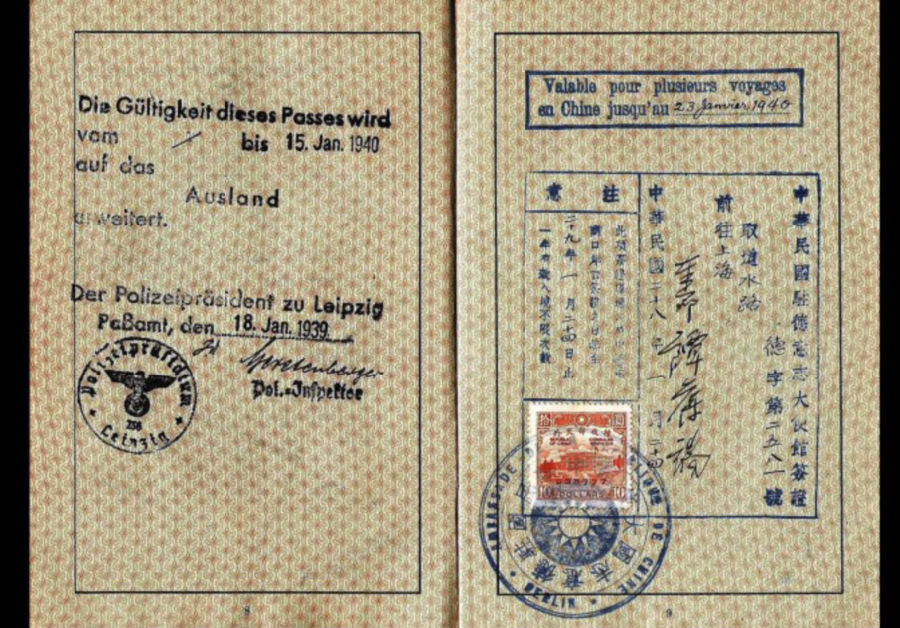Latest
Latest
Safe Harbor: Shanghai Surprising Stories of Jewish Refugees in World War II
Time:2019/8/27 16:16:19
Extract fromwww.chineseamericanmuseum.org/safeharbor
Safe Harbor: Shanghai
Surprising Stories of Jewish Refugeesin World War II
Exhibition—October 28, 2019–May 1, 2020
Conference—October 31, 2019
For Jewish people escaping NaziEurope in the 1930s, few countrieswere willing to take them in. DuringWorld War II, Shanghai, China offereda rare, safe harbor, sheltering almost20,000 Jewish refugees.Life for these “stateless” in Shanghai wouldprove harsh and challenging, particularlyunder increasingly restrictive Japaneseoccupation. Confined to a “ghetto” byJapanese authorities, Jewish refugeesfound themselves caught between boththeaters of the war.Through this exhibition and event, comeand experience extraordinary stories ofcultural adaptation, hope, and survival.

An Opportunity to Present a Lesser-Known History
The Chinese American Museum in Washington DC, will host a 1-Day conference in October 2019 and curate a temporary, 6-month exhibit at the site of our new cultural museum. The exhibition will highlight the history, stories, and global implications for the Jewish diaspora in Shanghai. An exhibit, conference, and online media will include personal stories of survivors, refugees, and descendants that settled in the United States.
The Shanghai Jewish refugees’ story is a topic that supports the museum’s mission to tell cross-cultural stories that emphasize the interconnectedness of different groups of people and our common histories. It is a unique opportunity to bring a diverse audience to both the Chinese American story and a truly international perspective during World War II.

The arrival of Jewish refugees from Austria in Shanghai in 1938. The refugees are disembarking from the Italian ship "Conte Verde". National Archives.
1-Day Conference
On Thursday, October 31, 2019, a one-day conference will feature discussions and presentations from historical and cultural experts and personal accounts of Jewish refugees and Shanghai-landers. The event is open to the public, but registration is required at www.chineseamericanmuseum.org/safeharbor.
Confirmed speakers:
Chinese Exit Visa, 1940.
Liliane Willens – Author, Stateless in Shanghai, Liliane Willens was born of Russian parentage in the former extraterritorial French Concession of Shanghai, China, where she attended a French lycée. Her parents, she and her siblings – all stateless – experienced World War II under the Japanese military occupation, the bombing by American planes and the return of the Chiang Kai-shek government. Because of difficulties to obtain an immigration visa to the United States, Liliane lived two years under the newly established People’s Republic of China. When Liliane immigrated to the United States, she studied at Boston University where she received her undergraduate degree, an M.A. and Ph.D. in French Language and Literature. She taught these subjects at Boston College and at the Massachusetts Institute of Technology. Later moving to Washington, DC, she worked for the U.S. Agency for International Development and the Peace Corps.
Betty Grebenschikoff - is a Holocaust survivor. When her peaceful childhood in Berlin, Germany, was shattered by Nazi violence against Jews, the family was forced to flee to Shanghai in 1939. They were just one step ahead of the Gestapo. Shanghai was the only open port at that time that admitted European Jews without visas or passports. It became a place of refuge for about 20,000 refugees. Grebenschikoff grew up in Shanghai where the family tried to make a living under difficult circumstances. She lectures extensively to museums, organizations, schools and colleges. Her memoir “ONCE MY NAME WAS SARA” has been translated into Chinese and that edition is also for sale at the Shanghai Jewish Refugees Museum.
Kimberly Cheng – PhD candidate in the Joint PhD Program in Hebrew and Judaic Studies and History at New York University, has been awarded the 2018-2019 Breslauer, Rutman and Anderson Research Fellowship at the USC Shoah Foundation Center for Advanced Genocide Research. Cheng is the second recipient of the Breslauer, Rutman and Anderson Research Fellowship, and will be in residence at the Center from September to October 2018 to conduct research for her dissertation, which examines central European Jewish refugee life
in Shanghai from 1937 to 1951. She is also a research volunteer with the Chinese American Museum, DC.
Gary P. Zola - Gary Zola is the Executive Director of The Jacob Rader Marcus Center of the American Jewish Archives and the Edward M. Ackerman Family Distinguished Professor of the American Jewish Experience & Reform Jewish History at Hebrew Union College-Jewish Institute of Religion in Cincinnati.
George Tompkin – Born in Harbin and eventually migrated to Shanghai, George Tompkin is a former European Shanghailander now living in New Jersey. He grew up in the French Concession where he lived there until the age of 13. He attended the Shanghai Jewish School until his family left in 1947 for San Francisco.
Bettie Peiwen (Ho) Carlson – The granddaughter of Dr. Feng-Shan Ho, considered by some to be the “Chinese Schindler,” speaks of her father’s legacy. As the Chinese Consul General in Vienna, he saved thousands of Jews by issuing them exit visas, despite contrary orders of his superiors. While his actions went mostly unnoticed and unrecognized during his lifetime, he has been recognized posthumously by many groups including Yad Vashem and Israel.
Documentary Screening
Monday, October 28, 2019, 6:30pm, the Chinese American Museum will host a screening of the documentary, Under the Drowning Sea, at the University of California DC complex (next door to CAMDC). Above the Drowning Sea recounts the courageous intervention of Dr. Feng Shan Ho, the Chinese Consul in Vienna who defied his own government and braved the Gestapo to issue visas to the refugees.
Jewish refugees and the Chinese residents of Shanghai who helped them survive in China recount their experiences, terrors and deprivations as well as the remarkable friendships forged across cultures, friendships that survive to this day.
Shot in six countries over four continents, Above the Drowning Sea is a 90-minute documentary that takes you on an inspiring emotional journey across time and across the world. Truly a story that could have been ripped from today’s headlines, the film vividly celebrates the heroism and humanity of ordinary people caught in extraordinary circumstances. More information and trailer can be found at http://abovethedrowningsea.com.

Chinese Exit Visa, 1940.



